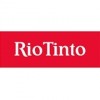Indian Institute of Technology (IIT), Kanpur
Kanpur, Uttar Pradesh
Your seniors at Indian Institute of Technology (IIT), Kanpur were your true well-wishers, they shared their placement interview questions for you. 🙏

Indian Institute of Technology (IIT), Kanpur
Your seniors at Indian Institute of Technology (IIT), Kanpur were your true well-wishers, they shared their placement interview questions for you. 🙏








